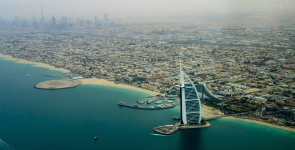The latest Global Economic Prospects Report by the World Bank provides an insightful analysis of the economic trends in the South Asia Region (SAR). According to the report, the Maldives’ economy is set to expand by 5.2 per cent in 2024 and 5.5 per cent in 2025. This growth trajectory places the Maldives in a favourable position within the SAR, which is expected to see a marginal decrease in overall growth from 5.7 per cent to 5.6 per cent in 2024.
The Maldives’ economic growth is primarily driven by a recovery in the tourism sector, with significant contributions expected from major economies, including China. The expansion of Velana International Airport and related investments in the tourism sector are key factors bolstering this growth. This positive outlook positions the Maldives as one of the fastest-growing economies in the emerging market and developing economy (EMDE) regions.
However, the report highlights certain risks that could impact this growth trajectory. The primary concerns for the Maldives, as with other countries in the region, include the potential escalation of conflict in the Middle East, leading to higher energy and food prices. Additionally, larger-than-expected increases in policy rates in advanced economies could have adverse spillovers, affecting the Maldives’ economy.
The World Bank report also demonstrates the risks posed by extreme weather events. The Maldives, being a small island nation, is particularly vulnerable to climate-related disasters, which could have severe implications for poverty levels, health conditions, and food security. The implications of these climate-related disasters extend beyond immediate physical damage. They have the potential to disrupt the critical tourism sector, which is a major driver of the Maldivian economy. The loss of coastal areas and degradation of coral reefs, which are essential for marine life and attract tourists, could have substantial economic repercussions.
While the economic outlook for the Maldives is optimistic, the potential risks highlight the need for robust policy measures to mitigate these challenges. The Maldives’ situation highlights the urgent need for comprehensive climate resilience strategies. These include investing in sustainable infrastructure, implementing stringent environmental protection measures, and enhancing disaster preparedness and response capabilities. Furthermore, the country’s plight highlights the broader global issue of climate change, stressing the importance of international cooperation and support, particularly for vulnerable nations like the Maldives, in combating the adverse effects of global warming. The World Bank’s report serves as a reminder of the interconnectedness of environmental health and economic stability, particularly for island nations on the frontline of climate change.



















